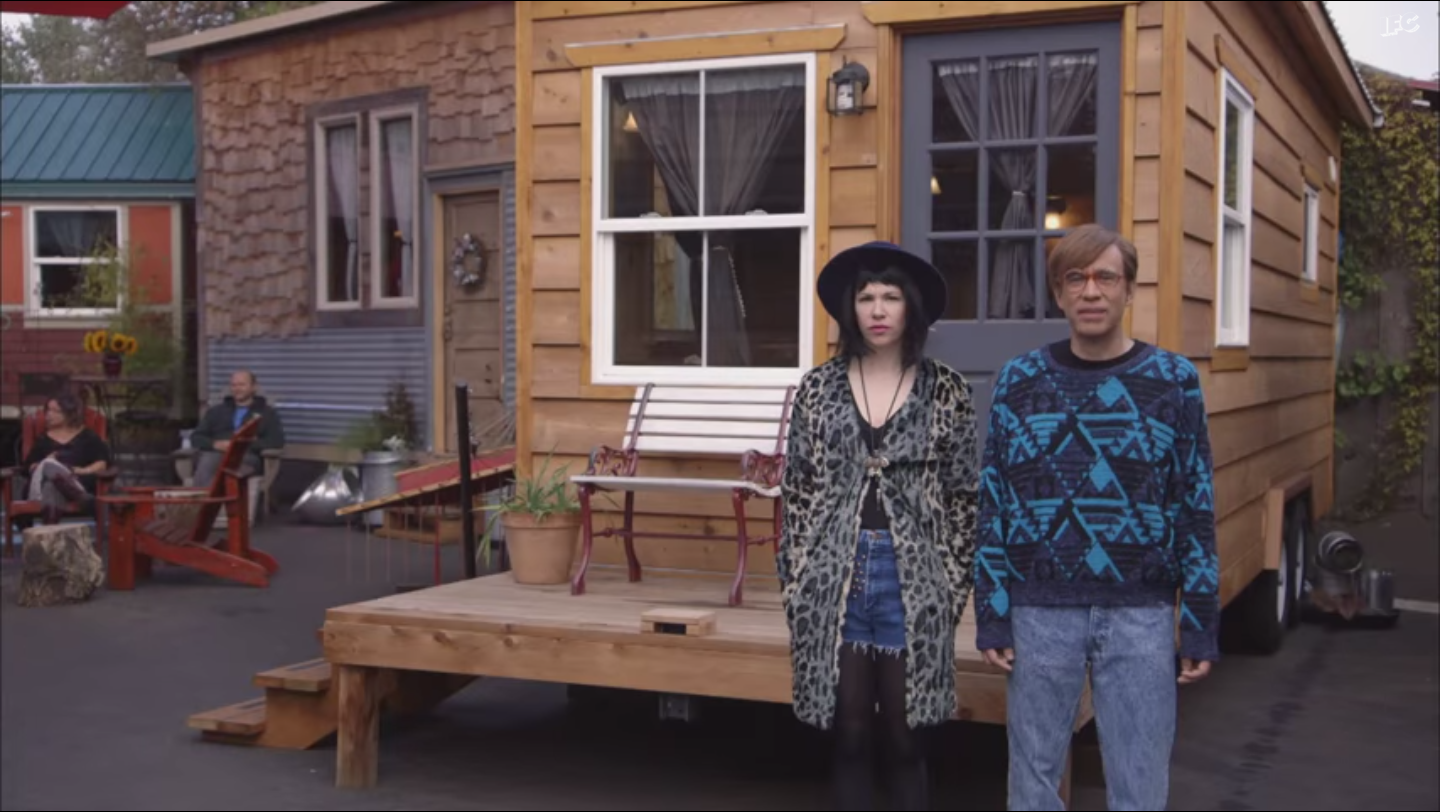I awoke this morning to two shocking things in my inbox: First, a message from the widow of a Nigerian general saying that her $22 million inheritance has been held up by local authorities and if I send a mere $10,000, the government will release the funds and I will be handsomely (“HANDSOMELY”) rewarded for my help. Second, a friend sent me the above clip from an upcoming Portlandia episode — which, for the first time in the history of the show, actually made me laugh. Shocking, right?! A Nigerian widow offering me money is one thing but LOLing at Portlandia? Never thought I’d see the day!
The reason my friend sent me this clip is because I, too, live in a tiny house. OK, I live in a 300-square-foot studio and not an actual tiny house, but if I call it one it makes it feel like a conscious decision to limit my environmental impact and not an unfortunate consequence of gentrification and Seattle’s insane rental market.
But even though the Portlandia tiny house is a charming little bungalow with handmade fixtures and my place is a damp shitbox with a faucet that’s been dripping for three months, I can relate to the characters in this sketch. True, their fictional home has a bathtub and I don’t even have a bathroom sink, but I get it: Tiny living is not easy.
For me, the hardest part of micro-housing isn’t the lack of space. Sure, I don’t really enjoy spitting toothpaste into the same sink as my dishes, and the mini-fridge in my mini-kitchen makes me feel like I Benjamin Button-ed back to college. But I don’t actually need much space — I’m good with two towels, two dishes, and two pairs of shoes. Plus, I live alone (unlike this couple who built a 133-square-foot home and then broke up), which means the only person who drives me crazy is myself (and I do). No — for me, the hardest part of micro-housing isn’t about space, but about cost.
In the fastest-growing city in the country, even a micro-studio is expensive, and I pay more for my 300-square-foot Seattle jail cell than I did for a two-bedroom, two-bathroom apartment with a pool and a porch and an adult-sized fridge back in North Carolina. So that’s the worst part: Knowing that when my lease is up and I’m ready to live in a place that’s big enough for a double bed, there’s no way I’ll be able to afford it and continue to live alone, at least not in this city. Micro-housing may not be the way for everyone, but I’m afraid that for me, it’s the only choice — at least until my check from Nigeria arrives.



